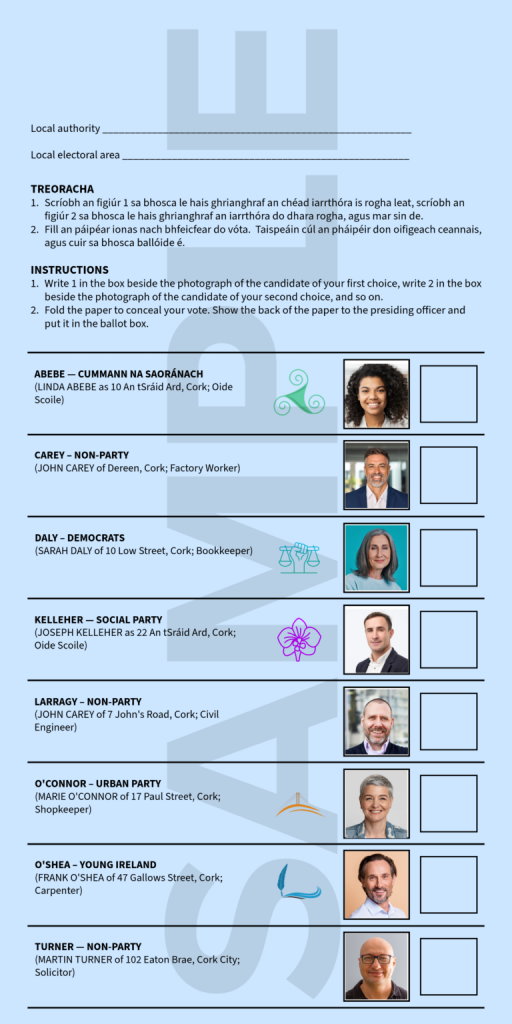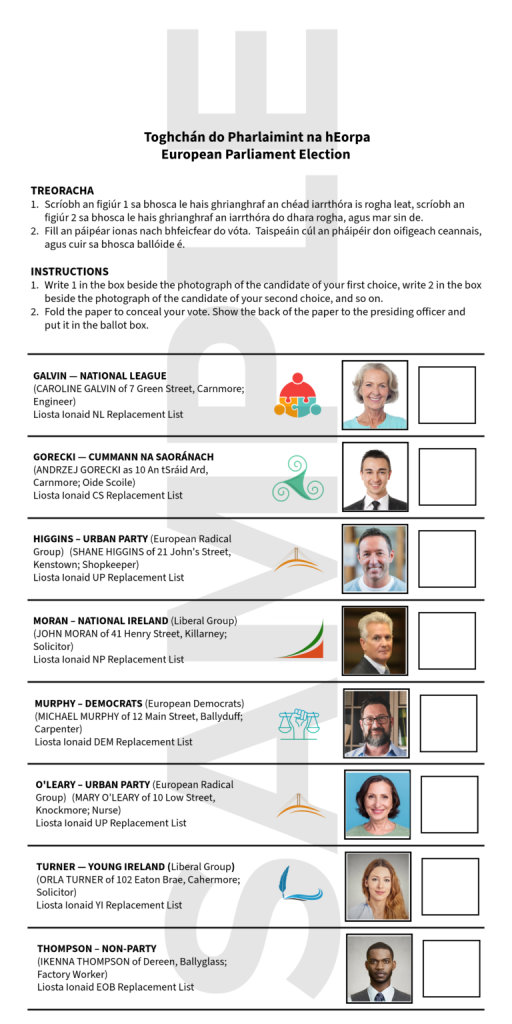Ireland’s general election will be taking place on Friday, November 29th. 92.5 Phoenix FM will be bringing you all of the latest coverage in the run-up to and following the election with live updates from the count centres throughout the day.
It is vital to have your voice heard by participating in the democratic process. To help you prepare for voting, we have put together an explainer on how the ballot paper works and how to ensure your preferred candidate or candidates stand the best chance of being elected.
Our election coverage
92.5 Phoenix FM will bring the Dublin 15 community the very latest updates from the campaign and from the count centre as they happen. Our official election coverage is well underway where we will bring you interviews with many of the Dublin West candidates, some comment from analysts and experts, and advice on how to prepare for voting. You can follow our live blog and X page following the election for by-the-minute updates and our social media for interviews and comment with the candidates.
Still unsure of who to vote for?
We will be speaking to as many of the Dublin West candidates as possible in the run-up to the election. Find all of the interviews and specials on our new ‘General Election 2024’ podcast series, which you can find on all major podcast platforms. We also recommend taking the Which Candidate questionnaire to find out which political parties best align with your views and priorities, and do some research into independent candidates.
Single transferable vote: how it works
In Ireland, the electoral system we use is the single transferable vote. This means that each voter has one vote that can be transferred to candidates other than the one given the first preference vote. When filling out the ballot paper, assign a number from 1 downwards to each of the candidates that you would like to see elected. If you do not want to see a candidate or candidates elected, simply leave their box blank.
There is no obligation to give a preference vote to each candidate nor do you have to give preference votes to more than one candidate; however, it is best that you give preference votes to all candidates whose views and policy positions you support.
At the polling station
Voting will be open from 7am to 10pm. Head to the polling station marked on the polling card you should have received in advance of the elections, and bring this with you to the polling station. If you have misplaced or did not receive your polling card, please visit https://checktheregister.ie where you can find your assigned polling station.
Make sure to bring your polling card if you have it and a form of photo ID such as a passport or driving license. You may not be asked for ID if you present a polling card but it will be required otherwise.
You will receive a ballot paper upon verifying your identity. The list of candidates will be presented alphabetically going by last name, alongside their party affiliation if they are part of one. See the sample papers for this year’s local and European elections below:


Who can I vote for?
The right to vote in Dáil elections is reserved only for Irish and British citizens who are currently residing in Ireland.
This year, there will be 16 candidates on your ballot paper, so it is important to familiarise yourself with the candidates up for election and have your preferences in mind before entering the polling station.
The candidates standing for election in the Dublin West constituency, listed in order of their appearance on the ballot paper, are:
- Umar Al-Qadri, Independent
- Jack Chambers, Fianna Fáil
- Ruth Coppinger, People Before Profit-Solidarity
- Emer Currie, Fine Gael
- Susanne Delaney, Independent
- Paul Donnelly, Sinn Féin
- Tania Doyle, Independent
- John Forde, Independent
- Breda Hanaphy, Sinn Féin
- Ellen Murphy, Social Democrats
- Lorna Nolan, Fianna Fáil
- Roderic O’Gorman, Green Party
- Patrick Quinlan, National Party
- Natalie Treacy, Independent
- Ellen Troy, Aontú
- John Walsh, The Labour Party



